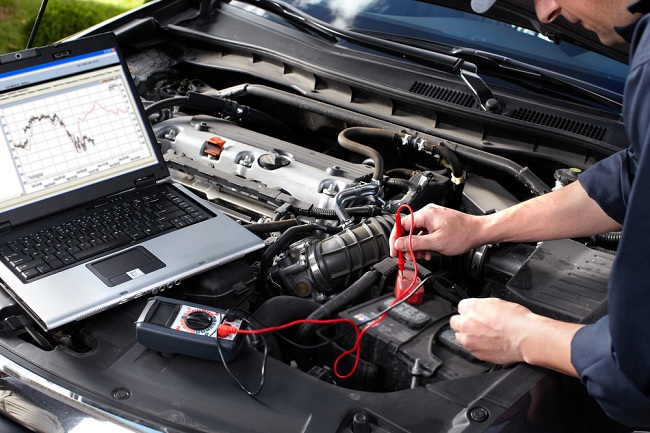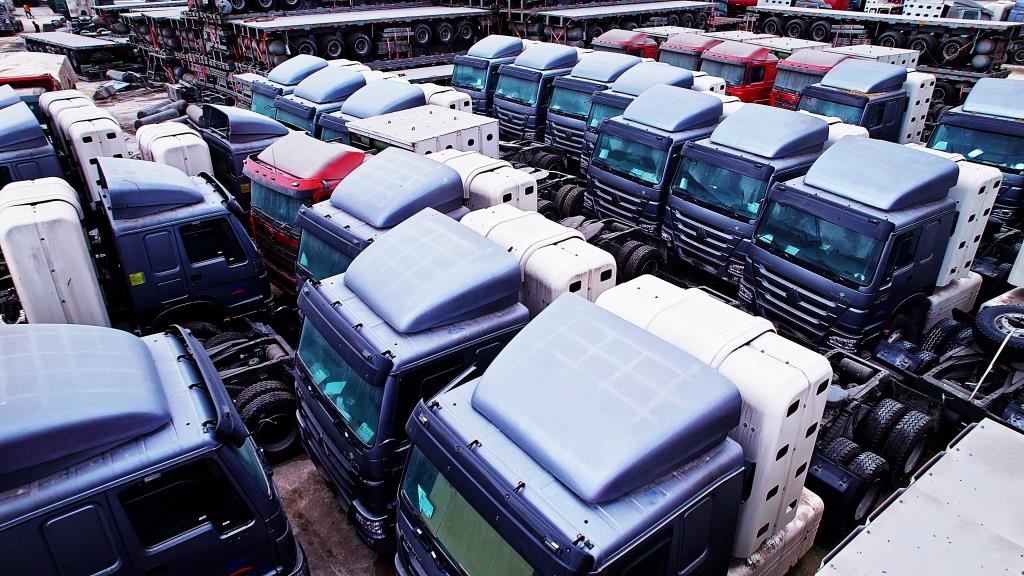Auto
10 Things to Check During Used Car Pre-Purchase Inspection

By Autofactorng
A pre-purchase inspection will help you feel assured about a buying a used car. Check warning lights, fluids, tires, suspension, and brakes in a PPI.
When buying a used car, it is important to get it checked out by a mechanic to make sure everything works correctly. So, it is better to go for used cars in Sacramento which have quality second-hand cars. Make sure the mechanic checks certain crucial systems, including the engine, brakes, and battery.
In addition to these vital components, the mechanic should inspect other parts important to the functioning of a vehicle, such as the dashboard, tires, fluid levels, catalytic converter, and much more.
- Dashboard
The vehicle dashboard contains a variety of readouts allowing you to interact with your vehicle, including the odometer, speedometer, temperature gauge, and warning lights to let you know when something is wrong with your vehicle. All of the gauges should work properly and you should have no warning lights on the dash. If a warning light is lit up, then the mechanic inspecting your vehicle needs to determine the cause in order to give you an estimate on how much it costs to have the vehicle repaired.
- Tires and suspension
The mechanic can check the suspension of the vehicle by pushing down on each corner to see what condition the shocks are in. In addition to the suspension, the tires are another important area that the mechanic should check. When looking at the tires, the mechanic assesses the condition they are in and if they exhibit uneven wear, which can signify an alignment problem.
- Fluids
In order to function properly, a vehicle relies on a selection of fluids to help cool and clean the engine, provide pressure to specific systems, and help keep your windshield clean while driving. When checking the fluids in your vehicle, a mechanic assesses the fluid’s condition, makes sure they are at the proper level, and checks to see if there are any visible leaks.
Engine oil: The engine oil helps cool vital engine parts while in operation and removes dirt and debris, which is filtered through the oil filter.
Synthetic oils also contain detergents that help prevent the buildup of deposits on engine parts.
Engine oil that looks dark or grainy needs changing. In addition, oil that has brown bubbles or looks like chocolate milk may indicator that coolant is leaking into your engine.
Brake fluid: The mechanic should also check the brake fluid to make sure it is at the proper level, there are no visible leaks, and that it is in good condition.
On newer vehicles, the mechanic will check the brake fluid reservoir, which has minimum and maximum lines embedded in the tank. The brake fluid should sit at a level somewhere in between.
Likewise, the brake fluid should have a brown coloration. If the fluid looks dark, then the brake fluid might need changing.
Coolant: The mechanic will also check coolant level and condition.
Antifreeze breaks down over time. As it ages, it works at less colder temperatures until eventually it does not keep the water in your radiator from freezing when it gets too cold.
The mechanic will check the level of the coolant in your radiator at the reservoir.
The mechanic will also check the condition of the fluid to see if there are any indicators that the radiator needs flushing and the coolant needs replacing. Some indicators that a coolant flush is needed include: Colourless or rusty coolant or coolant with materials floating around in it and a sludgy, oily surface, which is a strong indicator of a leaking head gasket.
Power steering fluid: The power steering fluid helps keep pressure built up in the power steering system, making it easier to steer your vehicle.
The mechanic will check the power steering fluid level using a dipstick or by looking at the minimum and maximum lines on the side of the power steering fluid reservoir.
Power steering fluid is a clear, amber, or pink color. If it is brown or black, the power steering fluid might need replacement.
Windshield washer fluid: Additionally, the mechanic will check the windshield washer fluid reservoir to make sure it is at the proper level.
The mechanic will also check the reservoir tank for leaks or cracks at this time. In addition, the mechanic will check to make sure the spray nozzles work properly.
- Brakes
The brakes are a very important system on a car, allowing you to slow down or stop the vehicle safely if needed. In addition to the pads, the mechanic needs to make sure the rotors are in good shape.
Brake pads: The brake pads grip the rotors and stop the vehicle when the brakes are pressed.
Over time, the material on the pads that help it grip the rotors breaks down and wears away. Eventually, you need to replace your brake pads.
Brake rotors: The brake rotors are the surface that the brake pads rub against, helping to stop the vehicle.
The mechanic will check the brake rotors for any scoring, uneven wear, or rust. Sometimes you must get the rotor disc resurfaced, but if the damage is too extensive, you need to replace the brake rotors.
- Engine
The engine is another major component that the mechanic should check. The mechanic is testing to see whether the engine idles smoothly and if there is any knocking or other noises while the engine warms up to operating temperature.
Cooling system: The cooling system includes the radiator, thermostat, and any hoses that route the coolant to the engine.
The mechanic should check the cooling system for any leaks and to make sure that the coolant cycles properly when the engine is running.
The thermostat should open up when the coolant reaches a certain level, allowing cooler coolant in from the radiator to the engine and the warmer coolant to filter into the radiator where the coolant can vent the excess heat via the coils of the radiator.
The mechanic should also check all of the hoses to and from the radiator to the engine to make sure there are no leaks.
Belts: Most cars have a variety of belts, including the belt that runs the alternator, water pump, and other systems.
The mechanic should check any belts for cracks, wear, and stretching.
Some other belts the mechanic will check out include the fan belts, or the compressor belt, which run the air conditioning.
Air filter: The air filter in your vehicle helps keep harmful debris and dirt out of your engine.
The mechanic should check the air filter to see how blocked it is and if it needs replacing.
In addition, make sure the mechanic checks the cabin air filter to determine if it needs replacing. The cabin air filter, usually found behind the glove box if present, filters out dust, pollen, and dirt, keeping it from coming in through the air vents of your vehicle.
Ignition components: The ignition system includes the ignition switch, starter, starter solenoid, alternator, spark plugs, spark plug wires, and battery.
The mechanic should check the battery, alternator, and starter to make sure they are working properly. The mechanic can also check the battery’s charge to ensure that it’s not low.
In addition, the mechanic should check out the distributor cap and rotor if your vehicle is old enough to have a distributor.
Engine oil leaks: When looking over the engine, the mechanic can check for any oil leaks.
Leaks are usually the result of a bad gasket or seal. The mechanic can tell where the leak is coming from usually by its location on the engine or surrounding components.
- Transmission
The mechanic should check the transmission to assess smooth shifting with no delay when going into gear. If the vehicle has a manual transmission, it should shift without grinding.
In addition to making sure the transmission operates smoothly and goes into gear like it should, the mechanic should look for leaks underneath the vehicle. Transmission fluid is red in coloration and usually drips on the ground beneath the engine if there is a leak.
- Exhaust
A vehicle’s exhaust system helps move the fumes from the combustion chamber out of the engine and away from the vehicle. The exhaust pipe exits at the rear of the vehicle, limiting the exposure of the driver and passengers to carbon monoxide fumes, which are deadly if too much is inhaled.
Exhaust manifold: The exhaust from the combustion chambers is routed through the exhaust manifold and makes its way through the vehicle’s exhaust pipes and out of the back of the tail pipe.
If you smell an exhaust smell within the cabin of the vehicle, chances are the vehicle exhaust system has a leak and needs repair.
Catalytic converter: The catalytic converter scrubs the outgoing exhaust of pollutants before releasing them.
A faulty catalytic converter can lead to a loss of power while driving a vehicle. More than likely this can also cause the vehicle to fail an emissions test.
Muffler: The muffler helps reduce the noise produced by a vehicle’s exhaust system.
A faulty muffler can let deadly carbon monoxide fumes into the vehicle’s interior. Prolonged exposure to carbon monoxide can lead to unconsciousness and death.
A damaged muffler can also cause the vehicle engine to overheat or even lose power.
Tailpipe: The tailpipe is where the exhaust exits the vehicle and can give you a clue as to the condition of your exhaust system according to the smell that issues out of it.
If the exhaust smells like rotten eggs, then the catalytic converter might have become blocked or is in the process of failing.
The strong smell of exhaust could lie in an exhaust leak somewhere in the system, including the exhaust pipe, muffler, or tailpipe.
If you detect a gas smell coming from your exhaust, then the air to fuel mixture entering into the combustion chamber is probably off.
- Body of the vehicle
Another area a mechanic needs to look at when inspecting a vehicle you want to buy is the car’s body. While minor scrapes and dents are easily fixed by a professional auto body specialist, more significant damage might mean the car was in a more extensive accident. This in turn could lead to the vehicle being out of alignment, which can cause uneven tire wear.
Dents and rust: The mechanic should look for rust and dents on the car body, especially in areas that you cannot see, such as underneath or in the wheel wells.
Dents and rust themselves are not a cause for alarm if minor enough.
If the rust damage is extensive enough, then you should consider looking for a different vehicle.
- Vehicle lights
The lights in the vehicle also need to operate properly. Correctly working headlights give you good visibility in dark and inclement conditions, while brake lights and turn signals let other drivers know your intent on the road.
Headlights: When inspecting the vehicle’s headlights, the mechanic should make sure that both high and low beams work correctly.
The headlights are a required part for legal and safe vehicle operation.
While easily replaced, blown headlights could signify more complex problems with a vehicle.
Brake lights: The brake lights on a vehicle must work properly in order for other vehicles to be able to see your stopping in low-light or dark conditions.
Driving a vehicle with non-working brake lights is considered a moving violation and could lead to a ticket from the police.
Turn signals: Turn signals make drivers aware of your intent to turn left or right.
When having the turn signals checked, make sure the mechanic looks at both the front and rear turn signals.
Hazard lights: Hazard lights alert others to problems with your vehicle.
Hazard lights are helpful when you have broken down on the side of the road to alert other drivers to your vehicle’s presence.
- HVAC
The HVAC system in your vehicle is important for controlling the environment within the passenger cabin. Make sure the heat and air conditioning within any vehicle you want to buy works properly. This keeps you from having to suffer through extreme cold or heat and can make your driving experience more enjoyable.
Air conditioning: The air conditioner should blow fresh, cold air while on.
Failure to cool the air could mean the air conditioning compressor needs refrigerant or that you have a broken belt.
Heater: In addition to the air conditioning, also check out the heater in any car you are thinking of buying to make sure it also works properly.
Turn the heater on and allow it to heat up. Most often the vehicle engine needs to warm sufficiently before the heater can begin blowing out warm air.
See if you can detect any bad smells coming from the vent when using the heater or the air conditioner, especially mildew. More than likely if you smell mildew, it means the vehicle has mildew growing inside the AC evaporator.
Buying a new vehicle is stressful enough without having to worry about buying a vehicle with problems. You should inspect any used car before you buy it. If you do not feel confident enough to perform the task yourself, you can always have one of our expert mechanics perform a pre-purchase car inspection for you.
Auto
Heirs to Introduce Low-Cost Motor Insurance

By Modupe Gbadeyanka
There are plans by Heirs Insurance to introduce insurance products tailored for vehicle owners, a statement from the underwriting firm has disclosed.
According to the subsidiary of Heirs Holdings, this low-cost motor insurance package known as the Flexi Comprehensive Motor Insurance Plan will provide the benefit of a comprehensive motor insurance plan for a fraction of the cost, addressing the financial realities many Nigerians face.
The underwriting company announced the plan to introduce this package as it launched a new campaign designed to reward its customers.
This initiative themed Unwrapping Smiles will bring hope to individuals, families, and communities this holiday season, and will run from December 10 to December 31, 2024.
It will feature community-focused outreaches, including Christmas gifts and exciting rewards to put smiles on the faces of Nigerians. It will also include the launch of a holiday-watch web film known as The Underwriters for all Nigerians to enjoy.
“At Heirs Insurance Group, we are committed to providing much more than insurance. In a season when many Nigerians seek hope and reasons to smile, we are proud to offer initiatives that inspire and uplift,” the Chief Marketing Officer of Heirs Insurance, Ms Ifesinachi Okpagu, said.
Auto
FG Claims Investments in Presidential CNG Initiative Now $450m

By Adedapo Adesanya
Nigeria’s Presidential Compressed Natural Gas Initiative (PCNGi) claims that investments in championing the CNG value chain have hit $450 million.
This was disclosed by Mr Michael Oluwagbemi, Project Director and Chief Executive Officer (CEO), PCNGi, during the 9th Edition of the Nigeria Energy Forum (NEF2024) Day 2, Virtual Event themed Energising Sustainable Industrialisation.
According to the PCNGi CEO, the amount goes into things like mother stations, daughter stations and refuelling stations as well as conversion centres which are starting to spring up across the nation.
Mr Oluwagbemi, represented by Mr Tosin Coker, the Head of Commercial, PCNGi, said the initiative had successfully converted more than 10,000 vehicles from petrol to CNG.
“By 2027, the initiative will have converted more than one million vehicles using petrol to CNG,” he said.
On incidents of explosion of vehicles using CNG, the CEO assured Nigerians that it had taken precautionary measures with different agencies of government to ensure safety.
Mrs Ibironke Olubamise, National Coordinator of the GEF Small Grants Programme (SGP), managed by UNDP, said the SGP was investing in youth energy innovation for economic growth and environmental sustainability.
Mr Daniel Adeuyi, NEF Group Chairman, said, “The event featured three super sessions on Energising Industrial Revolution, Community Climate Action by GEF-SGP UNDP and Clean Energy Innovations.
“The sessions are to share lessons learnt from real-life projects and build capacity of young entrepreneurs and cross-industry professionals.”
Mr Joseph Osanipin, the Director General of the National Automotive Design and Development Council (NADDC), said that the council had trained more than 4,000 auto technicians on how to convert petrol vehicles to CNG.
He said the council had started campaigns to sensitise Nigerians on the advantages of using CNG to power their vehicles.
“CNG can guarantee a cleaner environment, it is cheaper and affordable,” he said.
Mr Oluwatobi Ajayi, the Chairman and Managing Director of Nord Automobile Ltd., said the company was established to tackle the growing demand for vehicles in Africa and reduce import dependency.
He said that because of the Federal Government’s CNG initiative, the company had incorporated it into their vehicle production to meet up with the government policy.
Mr Armstrong Tankan, the Managing Director and Chief Executive Officer, Ministry of Finance Incorporated (MOFI), said that MOFI was set up in 1959 as the statutory vehicle to hold all the assets owned by the federal government.
“Today, we’ve been able to identify the assets the federal government owns and we are trying to track them.
‘We actually do have assets, not just locally but globally as well and we must establish visibility over what the federal government owns before we can start talking about managing them.
“So, we want to try to minimise the waste, minimise the overlaps and help to improve output,” he said.
Auto
Dangote Becomes Largest Operator of CNG Trucks With $280m Investment

By Aduragbemi Omiyale
Over $280 million has been invested by Dangote Cement Plc in compressed natural gas (CNG) technology and infrastructure to enhance energy efficiency and drive economic growth in Nigeria.
The cement maker turned to CNG in demonstration of its support for President Bola Tinubu’s drive for cheaper and cleaner fuelling alternatives for all Nigerians.
At a recent event, the President emphasised the urgent need for Nigeria to utilise its vast natural gas resources in the transportation sector.
He stated that CNG transportation is an economic necessity for Nigeria, signalling a significant shift in the country’s approach to public transportation and energy use.
This has spurred Dangote Cement to adopt CNG, reflecting its dedication to mitigating climate change and supporting a transition to a low-carbon economy, making it the largest operator of CNG trucks in the country.
The chief executive of Dangote Group, Mr Aliko Dangote, said his company’s investments in CNG are also in line with Nigeria’s Nationally Determined Contribution (NDC) under the Paris Agreement, which aims for net-zero emissions by 2060.
“In this pursuit of transition to clean energy, we are optimistic of a remarkable accomplishment by President Tinubu, as he has taken the lead in the nation’s drive towards energy efficiency. This presupposes private sector intervention to support this noble idea initiated by the President,” he stated.
The businessman noted that the firm’s early adoption of CNG has made it the largest operator of CNG trucks in Nigeria, emphasising that the initiative is a boost to Mr Tinubu’s quest towards enhancing the nation’s energy independence and contributing to a more secure energy future.
“We are now using CNG vehicles, especially with the new policy of the federal government, launched under the Renewed Hope Agenda by President Tinubu. We are committed to a cleaner and greener future,” Mr Dangote said.
On his part, the chief executive of Dangote Cement, Mr Arvind Pathak, said the cement miller aims to acquire 100 per cent CNG trucks as part of a long-term plan to transition its entire fleet to CNG.
He disclosed that the CNG infrastructure investments have positively influenced Nigeria’s transition to cleaner fuels, adding that the CNG station at Obajana, capable of refuelling over 3,000 trucks, exemplifies this commitment, with a second station currently under development in Ibese to support fleet operations further.
“By mid-2026, Dangote Cement aims to operate a fleet predominantly powered by CNG. To facilitate this transformation, we are investing in expanding our CNG fuelling infrastructure, ensuring that our growing fleet has reliable access to CNG as our fuel,” Mr Pathak said.
He added that plans are afoot to aggressively pursue this timeline of deployment, beginning from the first quarter of 2025, saying, “We are keeping our eyes on the ball to ensure that we do not miss our target dates of full compliance.”
-

 Feature/OPED5 years ago
Feature/OPED5 years agoDavos was Different this year
-
Travel/Tourism8 years ago
Lagos Seals Western Lodge Hotel In Ikorodu
-

 Showbiz2 years ago
Showbiz2 years agoEstranged Lover Releases Videos of Empress Njamah Bathing
-

 Banking6 years ago
Banking6 years agoSort Codes of GTBank Branches in Nigeria
-

 Economy2 years ago
Economy2 years agoSubsidy Removal: CNG at N130 Per Litre Cheaper Than Petrol—IPMAN
-

 Banking2 years ago
Banking2 years agoFirst Bank Announces Planned Downtime
-

 Sports2 years ago
Sports2 years agoHighest Paid Nigerian Footballer – How Much Do Nigerian Footballers Earn
-

 Technology4 years ago
Technology4 years agoHow To Link Your MTN, Airtel, Glo, 9mobile Lines to NIN











